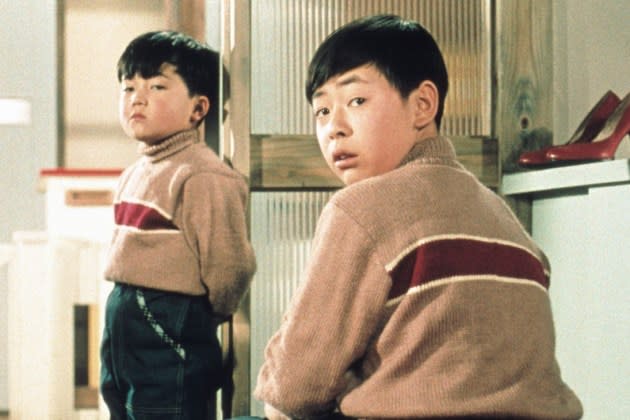Tokyo: Wim Wenders Leads Festival Tribute to Legendary Auteur Yasujiro Ozu

Leading filmmakers from China, Germany, Japan and the U.S. spoke of their admiration for Yasujiro Ozu as part of the celebrations at Tokyo International Film Festival for the 120th anniversary of the legendary Japanese director’s birth.
Wim Wenders opened proceedings by introducing a screening of a 4K digitally restored version of the 1959 comedy Good Morning, describing Ozu as “the master,” before a talk event featuring Jia Zhangke, Kiyoshi Kurosawa and Kelly Reichardt.
More from The Hollywood Reporter
Tokyo: Director Yoshiyuki Kishi on Challenging Taboos With Competition Film '(Ab)normal Desire'
Tokyo: Tony Leung Talks Working With Wong Kar-wai, Honing His Acting Skills
A passionate acolyte of Ozu, Wenders shot a documentary about the acclaimed director titled Tokyo-ga four decades ago, and 10 years later came to the Tokyo fest for his 90th anniversary celebrations.
Good Morning, the second film he shot in color, is a light but perceptive chronicle of family life in postwar Japan of the kind Ozu was so adept at creating.
“Watching Good Morning for the first time in a long time, I was struck by how the action takes place in such a small area, and it is the same ‘small’ dramas that punctuate so many Ozu films,” said Kurosawa, who noted that the director could sometimes also portray shocking violence.
Reichardt, herself known for minimalist tales of ordinary folk, spoke of the “perfect composition, each frame like a painting” portraying “the day-to-day dramas of life, the minutiae, with no heroes.”
The plot of Good Morning revolves around nothing much more than two young brothers nagging their parents to buy a TV, reminding Zhangke of his own youth, “When I was a child in China in the 1970s, I wanted a television set, just like the two boys.”
He added: “If Ozu was still alive today in the age of AI, I think the story would be of children who want a robot.”
Kurosawa described his thoughts on Ozu through the prism of The Munekata Sisters (1950), which he noted that while being firmly rooted within the director’s dominant theme of the Japanese family structure of the era, also displayed cynicism and nihilism, as well as a depiction of domestic violence that had not previously been seen on film in Japan.
For Zhangke, it was Ozu’s ability to portray the “shifts in the Japanese economy and society, and how people lived through them,” that set him apart from his contemporaries.
On her first trip to Japan, Reichardt explained that what she knows of the country came largely through cinema, and Ozu in particular.
“Tokyo Story is a form of road movie. But whereas in a U.S. film the story would be in terms of an existential crisis where you leave and find yourself, and it’s your family holding you down, in Ozu, the search is here. You are where you’re supposed to be,” suggested Reichardt. “The idea of ‘I’m happy as I am’ that is expressed in by characters in Ozu films is such an un-American thought. Dissatisfaction is so central to U.S. film.”
Reichardt added that it was difficult to talk about impressions of individual works in Ozu’s oeuvre as they “feel like an ongoing conversation.”
Digitally remastered 4K versions of 17 Ozu films are being screened at the festival, including Tokyo Story (1953), which still frequently appears near the top on all-time great film rankings seven decades after its release.
Best of The Hollywood Reporter

 Yahoo News
Yahoo News 